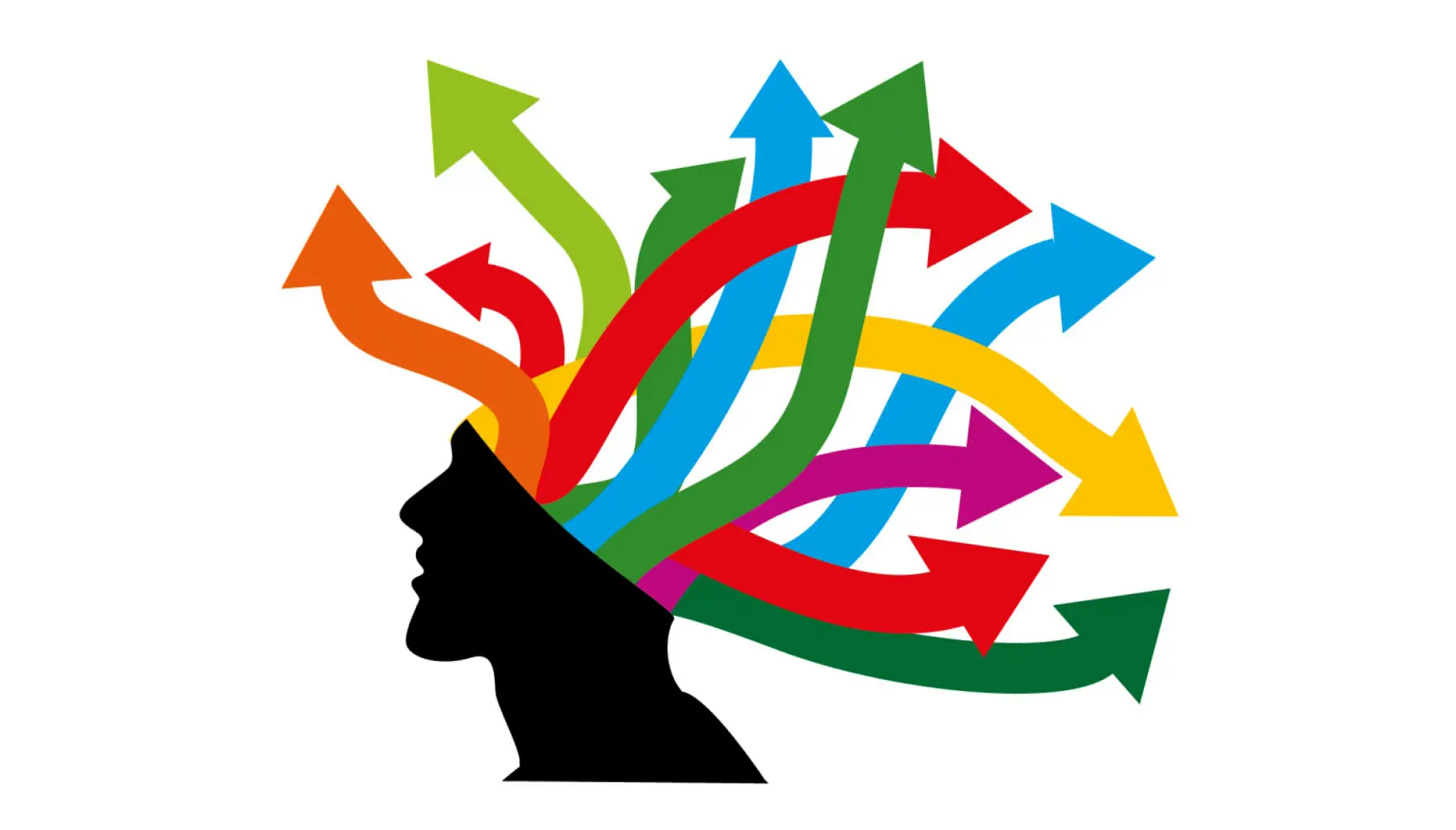The Abolition of Mental Health Stigma: Unbridled Individual Mental Illness Destigmatization as Cultural Normalization
Utopian anti-psychiatry ideology, civic degradation, & social anomie
“Present-day philosophers developing metaethics try to go further; as they slip and slide along the elastic space leading to an analysis of the language of ethics, they contribute toward eliminating the imperfections and habits of natural conceptual language. However, penetrating this ever-mysterious nucleus is highly tempting to a scientist.”
— Andrew M. Lobaczewski, Political Ponerology
The current academic and cultural climate of inclusivity, equity, and social justice cannot be fully understood without considering the impact of efforts within the mental health professions of psychology, psychiatry, and their allied academic disciplines to eliminate stigma associated with mental illness. As I previously noted:
Behind the ‘moral imperative’ for such legislation as Proposition C is an ideology of anti-psychiatry and “community care” for homelessness and mental illness (including addiction) that dates back to the sixties when capitalism, the mental health system, and mental institutions in particular, were targeted by social labeling theorists and others as defining or giving rise to mental illness. In short, the ideology was grounded in the notion that mental illness was arbitrarily defined by those in power and/or that capitalism and the mental health institutions themselves, were the source of mental illness (rather than mental illness being viewed as an organic brain disease process).

Pulitzer Prize winner George F. Will recognized both this anti-psychiatry ideology and its deleterious effects on civic functioning in a prescient Washington Post op-ed in 1987, entitled “A Right to Live on the Sidewalk.” So did another Pulitzer Prize winner, the brilliant Charles Krauthammer.
Nonetheless, radical progressivist anti-psychiatry ideology continues to be propagandized as both morally righteous and a noble social project.1
Indeed, coinciding with World Mental Health Day in 2022, the Lancet published a Commission on ending stigma and discrimination in mental health. Destigmatization efforts often take the form of changing specific diagnostic nomenclature to less categorical and illness-specific language; (e.g., a “person with problems in living” cf. “a person with substance abuse problems”), and the elimination of the term ‘abnormal’ altogether in undergraduate and graduate course titles. It also encompasses softer forms, including sanitizing any notion of ‘negative value’ (negative deviance) or ‘problematic or pathological denotation’ with reference to what various psychological, psychiatric, or other mental health constructs and categorical diagnosis imply about the afflicted individual. This same softening of language away from any potential negative implication about a given ‘diagnosis’ or ‘condition’ has also spread more broadly into social science research, including my own area of research investigating the ‘disorganized/disoriented’ infant attachment classification. Pushing back against this, I have argued that calls to remove any notion of ‘negative deviance’ from the construct of infant attachment disorganization are innaccurate, misguided, and unhelpful.
This professional and public destigmatization advocacy has evolved within the broader context of a social-media ecosystem that has emerged around the notion of ‘neurodivergence’ – a general concept that is used to refer to a brain that functions differently than normal, or ‘atypically.’ Importantly this neurodivergence is framed as a uniquely personal strength that makes an individual special, rather than as a ‘deviation’ from normative functioning. Thus, functioning previously that would likely have been seen as ‘negative deviance’ is now cast as ‘positive uniqueness.’ A vast network of online communities for various mental health conditions has arisen in which users share experiences, diagnoses, and lived experiences ostensibly reflecting the unique experiences individuals with these mental health conditions face. Despite the potential for positive individual benefits, such communities, often appear better characterized as affinity spaces in which the social currency is the (often self-diagnosed) mental health condition, rather than an accurate understanding of the pathological mental health condition and a valuing of a desire to effectively mitigate or overcome its negative personal and social effects. Instead, the mental illness or its symptom display appears to be reified as central to the individual’s identity or self-concept. That is, it makes them unique rather than deviant or afflicted with a non-normative pathological condition.
Along with my colleagues, I have recently written about this from the vantage point of several mental illness conditions. We have suggested that there is an urgent need for researchers, clinicians, and those suffering from mental illness to arrive at a contemporary common understanding of what is and is not considered within classical notions of psychiatric definitions of mental illness. To delay this conversation risks an increasingly dangerous blurring of the lines between progressive-minded, humanitarian destigmatization of individuals suffering from mental illness and a pathological cultural normalization of destructive interpersonal behaviors and civic conditions.
Undoubtedly guided by a humanitarian impulse and having roots in the anti-psychiatry movement begun in the 1960’s that emerged in response to recognition of abuses and degrading conditions in many psychiatric hospitals following World War II, mental health destigmatization advocacy has had positive influences, including an increased awareness that mental illnesses are not isomorphic with ‘character defects’ and mitigating perceived ‘social shame’ for those who consider seeking professional help. However, contemporary destigmatization advocacy has taken on a more activist-driven, ideological crusade characterized by efforts to completely destigmatize and sanitize the non-normative (i.e., abnormal) signal-value of classic mental health terminology for the larger public. This has contributed to a pseudo-normalization of deviant or otherwise harmful behavior, such as drug and other substance abuse, with counterproductive macrosocial effects. As author and journalist Michael Shellenberger has meticulously chronicled in his well-known work on the homelessness and drug addiction problem in San Francisco and other American cities, untreated mental illness and addiction are dangerous and destructive. As well, the increasingly devastating and irreversible medical effects of procedures undertaken as an affirmative reaction to perceived gender incongruence is perhaps the most culturally salient example of the pernicious and counterproductive effects of the normalization of what is a clearly non-normative mental condition that warrants measured assessment, examination, and treatment.
Cultural stigma does not arise de novo. Stigmas have been recognized in all cultures throughout history. Given their universal presence across time and space, inquiry into the functional or organizing role they may play in human evolution is both timely and important. Indeed, evolutionary researchers have undertaken this task, suggesting the adaptive significance of stigma as ‘behavioral immune system’ operating at the level of society. Such an immune system is thought to contribute to the promotion of public health, the reinforcement of cultural-social norms, and through this the facilitation of social conformity and cohesion (vs. individual atomization and anomie). More generally, shared universal frameworks of acceptable social behavior and functioning organize a common civic understanding that enables the public to socially engage in ways that permit stable ways of life and business with shared societal benefits through public institutions that are created to serve the public good.
As I have suggested, a ‘healthy’ society that aspires to the true and the good is one in which adaptive forms of social stigma are recognized by the polity and provide for the most effective and efficient civic oversight. Of course, stigma can be weaponized and used by leaders and government to control and marginalize certain members of a society and can become what has been described as structural stigma—or the ways that societal ideologies and institutions perpetuate or exacerbate a stigmatized status or condition. However, the instantiation of structural stigma can be viewed as a pathological manifestation and abuse of culturally adaptive forms of stigma, and the two should be clearly distinguished and not conflated.
Wholesale elimination of ingrained cultural stigmas is ill-conceived. Complete liberation from long-standing evolutionary-based social interdicts invites chaos, suffering, and anomie, including increased likelihood of experiencing stigma for those currently suffering. This is because, I argue, a population will inevitably reach a saddle point, or threshold, at which they can collectively tolerate a situation where destigmatization advocacy has lost any patina of reason and genuine compassion for marginalized individuals. Once the population instead believes that such advocacy has advanced to a pernicious normalization of deviant behavior and the ideologies associated with them, push back will invariably ensue with unfortunate consequences for those who are genuinely suffering. Such an inflection point has now been reached with the gender ideology framework, as it has been used to destigmatize and normalize concepts and ideas that are untethered from the biological reality of human sexual development. It is thus imperative for scientists, clinicians, and policy-makers to take a sensible and measured approach to destigmatization of mental illness, recognizing the inherent positive and societal preserving effects of cultural stigma and the dangers of normalizing individually destructive or pathological behaviors and conditions which are anathema to civilized societal functioning.





Worth every penny. "a uniquely personal strength that makes an individual special" - the god-child is not new, we have passed this way before.